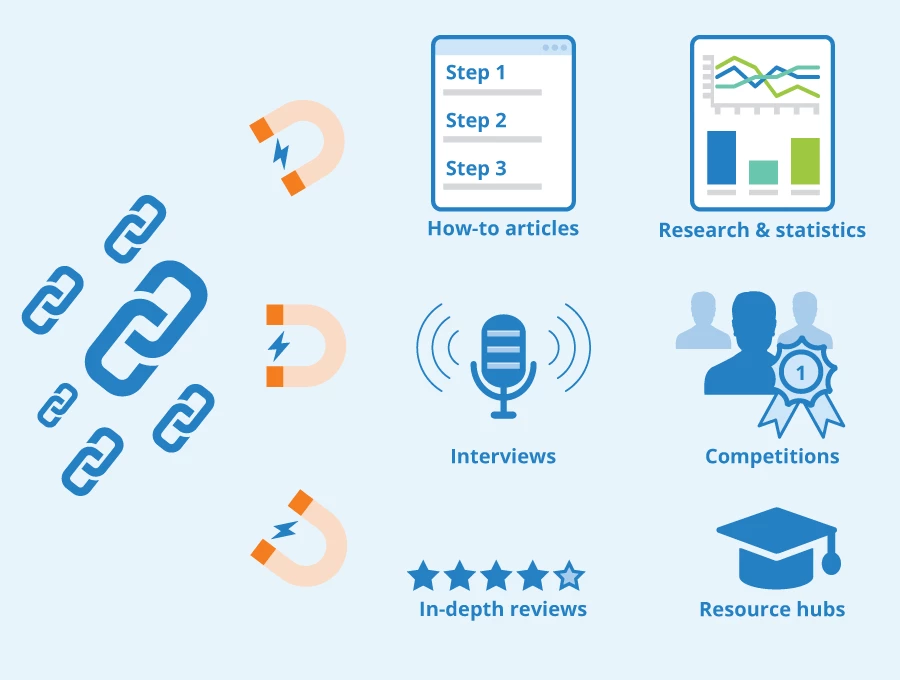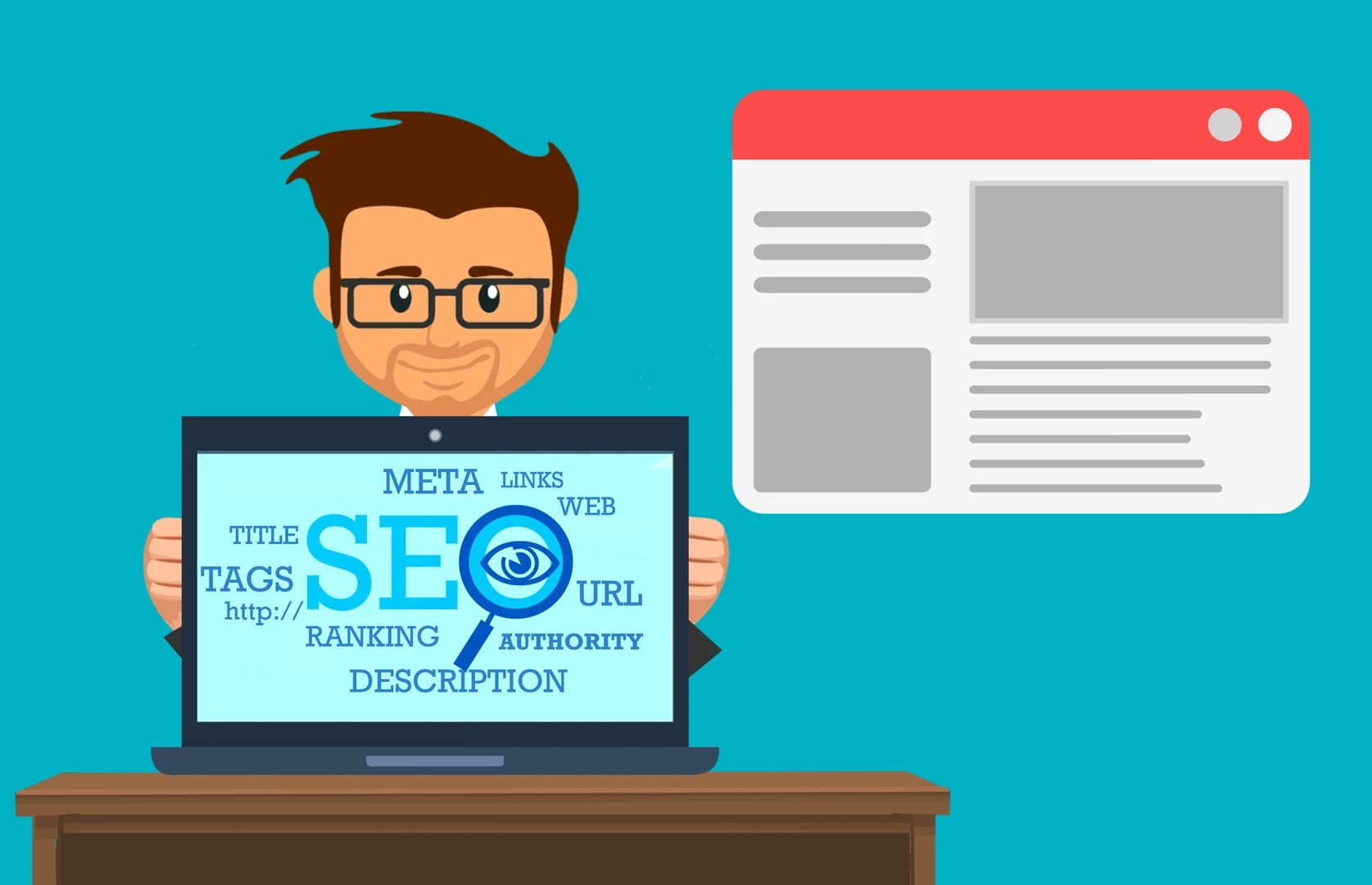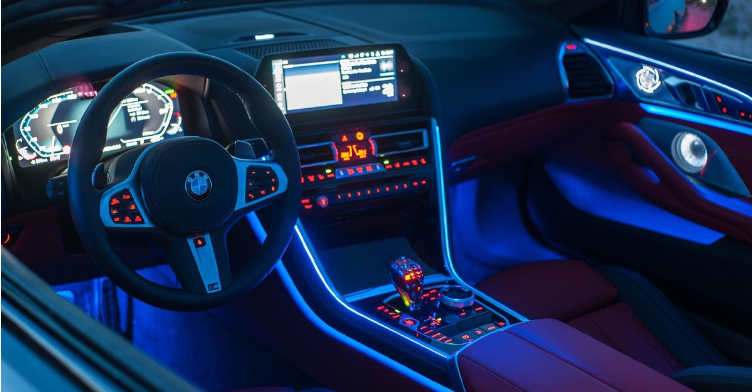Business
How Long Does Gucci Rush 2 Perfume Last?

Almost a year ago, Gucci Rush 2 perfume was released and it was a hit. The Italian couturier chose the number two for the fragrance’s name. In fact, it is said that the number two is the lucky number. Gucci Rush 2 is a Floral Woody Musk fragrance for women that was created by Gucci.
Gucci Rush 2 was first released in 2001. Michel Almairac is the perfumer behind this scent. Top notes include Freesia, Lily-of-the-Valley, and Rose; middle notes include Palm Tree, Narcissus, Lily, and Gardenia; and bottom notes include Black Currant, Musk, and Oakmoss.
Longevity
Depending on your body chemistry, the longevity of a perfume can vary. Some can last longer than others, and if you’re looking for an all-day scent, it’s important to choose one with the right staying power. Fortunately, there are some ways to make your fragrance last longer.
The longevity of a fragrance is dependent on many factors, such as the strength of the fragrance’s notes. A fragrance that is made with spicy notes will last longer than one with floral notes. Also, if the fragrance is made with woody notes, it will last longer than one that is made with fruity notes.
The longevity of a fragrance also depends on its concentration. The Eau de Toilette concentration of Gucci Rush 2 Perfume is approximately 1-3 hours. On the other hand, the Eau de Parfum concentration of the same fragrance is around 10 hours.
The longevity of a perfume can also be affected by the temperature and humidity of the environment. If you live in a cold, humid environment, your fragrance will last less than if you live in a hot, dry climate.
Scents
Designed by Tom Ford, Gucci Rush 2 is a fresh floral fragrance. The scent is housed in a box-shaped magenta bottle. It comes in two versions: a spray and a splash. The scent has a cologne like sillage and is suited for the daytime. The scent is made from fragrance ingredients such as jasmine, lily of the valley, narcissus, and gardenia. It is also complemented by green notes like oak moss and palm.
Gucci Rush 2 is a bit of a mixed bag. The scent has some real merits, but it doesn’t make the top of the class list. The scent is most suited for the 19 to 25 age group. The scent has a longevity of 1-3 hours, with the top notes lasting a few minutes and the middle notes lasting a few hours. The scent also does well in the humidity and temperature tests, but not as well as some other scents.
It’s a good idea to try the scent out for yourself before buying a full-sized bottle. For a fraction of the cost, you can find testers that come with an ornate box or no box at all.
Packaging
YSL Gucci Rush 2 perfume is a fresh, fruity, floral and green scent of Perfume Elegance. The bottle is a magenta box shaped container. The bottle measures just under a quart. A few top notes are evident upon first contact. Bottom notes are more muted. The scent lasts a few hours. The best way to wear it is to apply a spritz on the neck, chest, and shoulders. The cheapest and easiest way to buy the stuff is by mail order. A few dozen bottles of Gucci Rush 2 perfume will easily fill up a small mailing box.
Gucci Rush 2 is a cult favorite, and for good reason. The fragrance was designed by perfumer Michael Almairac. Its most notable features include a hefty dose of sexy musk, which is augmented by the usual suspects, oak moss and fresh-cut grass. YSL Gucci Rush 2 is a worthy heir to the throne of the Gucci Rush of yore, and is sure to delight its many devoted fans.

Business
How Businesses Can Foster Safe and Inclusive Workplaces

What Is a Safe and Inclusive Workplace?
Creating a safe and inclusive workplace is an ongoing commitment that requires intentional policies, continuous education, and accountable leadership. When organizations prioritize respect, equity, and psychological safety, employees are more engaged, productive, and innovative. Integrating wellness resources, such as opportunities to learn about nutrition Clarkston, MI, further supports employees’ overall well-being and reinforces a culture of care. By measuring progress, addressing challenges proactively, and embedding inclusion into everyday practices, companies comply with legal standards and cultivate a culture where everyone can thrive—driving long-term success for both people and the business.
Why Company Culture Matters
A company’s culture is the collective personality that shapes how people interact, collaborate, and solve problems. Company culture is rooted in visible behaviors, day-to-day operations, written values, and the subtle ways leaders and colleagues interact. An inclusive culture championed by management sets a positive tone and signals to staff that respect, equity, and fairness are non-negotiable values.
A positive culture makes it easier for people of all backgrounds and abilities to feel seen and heard. Leaders who uphold these principles ensure that everyone, from interns to executives, understands what inclusion looks like in everyday situations.

Building Effective Policies
Robust, visible policies underpin successful, safe, and inclusive workplaces. These must extend beyond anti-discrimination language to address the diverse needs of employees, such as accommodations for religious practices, disabilities, gender identity, and parental responsibilities. Policies should be developed with input from employees and subject-matter experts to ensure they are practical, relevant, and current.
- Clearly define what safety and inclusion mean for your business and sector.
- Create straightforward reporting procedures, ensuring every team member knows how and where to report issues.
- Outline fair investigation processes and consequences for policy violations to reinforce accountability.
- Review all policies annually and communicate updates regularly to reinforce expectations.
To foster trust, ensure that all documents are easily accessible and comprehensible, and provide training that enables policies to be effectively implemented in real-life situations.
Training and Education Programs
Continuous education is essential for changing mindsets and behaviors. Training efforts focusing on diversity, equity, and inclusion should go beyond awareness-raising, helping team members understand how to call out exclusionary practices and become effective allies. Regular workshops, simulations, and discussions of real-world scenarios ensure that information sticks and leads to lasting change.
Leadership and Accountability
Leadership’s role is critical in setting expectations and modeling desired behaviors. Senior management and supervisors must be trained to recognize unconscious biases, address issues swiftly, and celebrate team successes related to inclusion. Regular performance reviews that assess leadership’s inclusivity ensure ongoing commitment.
Transparency in how issues are handled and shared success stories fosters a sense of collective responsibility. When accountability is embedded at all levels—from frontline workers to executives—employees understand that safe and inclusive behavior is a non-negotiable standard.
Measuring Progress and Success
Determining if policies and programs are effective starts with clear targets and ongoing evaluation. Many organizations use employee surveys, pulse checks, or third-party audits to collect meaningful qualitative and quantitative feedback. These insights reveal whether staff feel safe and valued and can surface areas requiring further improvement.
Regularly sharing progress fosters transparency and trust, making clear that employee voices directly shape company priorities.
Common Challenges and Solutions
Roadblocks may arise during efforts to build a safe and inclusive environment. Resistance to change, a lack of resources, or legacy behaviors can create setbacks. Overcoming these challenges requires intentional communication, dedicated resources, and ongoing reinforcement of the business case for inclusion.
- Resistance to Change: Address skepticism with transparent communication and real-life workplace benefits.
- Unconscious Bias: Combat through tailored training sessions and reflective leadership assessments.
- Resource Constraints: Start small by celebrating early wins and leveraging free external toolkits and resources.
Keeping communication channels open and fostering psychological safety helps sustain engagement and momentum, helping organizations stay adaptable in a changing landscape.
Final Thoughts
Creating a safe and inclusive workplace is an ongoing commitment that requires intentional policies, continuous education, and accountable leadership. When organizations prioritize respect, equity, and psychological safety, employees are more engaged, productive, and innovative. By measuring progress, addressing challenges proactively, and embedding inclusion into everyday practices, companies comply with legal standards and cultivate a culture where everyone can thrive—driving long-term success for both people and the business.
Business
5 Success Stories from Leading Logistics Marketing Agencies

In today’s rapidly evolving marketplace, logistics marketing agencies play a crucial role in bridging the gap between supply chain efficiency and customer engagement. These specialized firms leverage a deep understanding of the logistics sector, utilizing innovative strategies to help companies maximize their reach and drive growth. Here, with the increasing complexity of global trade, the demand for adept marketing tailored specifically to the logistics industry has surged here today’s rapidly evolving marketplace, logistics marketing agencies play a crucial role in bridging the gap between supply chain efficiency and customer engagement. These specialized firms leverage a deep understanding of the logistics sector, utilizing innovative strategies to help companies maximize their reach and drive growth. Here, with the increasing complexity of global trade, the demand for adept marketing tailored specifically to the logistics industry has surged.
These agencies are not just about promoting services; they are data-driven, crafting campaigns that resonate with target audiences while enhancing brand visibility. From search engine optimization (SEO) to targeted digital advertising, they employ a range of techniques to ensure that logistics companies stand out in a crowded marketplace.
As we delve into the success stories of various logistics marketing agencies, we will uncover how they have transformed their clients’ operations, enhanced their online presence, and ultimately driven significant business outcomes. By showcasing these achievements, we aim to highlight the invaluable role logistics marketing agencies play in the modern business landscape, making them indispensable partners for companies striving to thrive in this competitive environment.
Importance of Marketing in the Logistics Industry
In the increasingly competitive logistics industry, effective marketing is not just a luxury — it’s a necessity. The nuances of this sector demand a strategic approach that combines traditional marketing techniques with advanced digital strategies. As logistics firms strive to differentiate themselves, marketing becomes the driving force behind brand recognition and customer loyalty.
One of the primary roles of marketing in logistics is to educate potential clients about the complexities and benefits of various services. With rapid technological advancements and shifting consumer expectations, agencies that effectively communicate their value propositions can capture market share and establish trust.
Moreover, targeted marketing campaigns help logistics companies to reach niche markets and tailor their offerings accordingly. By leveraging data analytics, agencies can identify customer pain points and provide solutions that resonate with specific audiences.
Finally, a strong marketing presence enhances a company’s reputation in an industry often plagued by misconceptions. By showcasing success stories and transparent operations, logistics firms can build credibility and foster long-term relationships. In essence, marketing is not merely an add-on; it’s the backbone of growth and sustainability in the logistics landscape.
Overview of Success Stories
In the ever-evolving landscape of logistics, marketing agencies have emerged as pivotal players, transforming how companies connect with their audiences. These success stories highlight innovative strategies that have led to remarkable growth and brand recognition, with the specific agencies involved remaining undisclosed due to NDA agreements.
One standout example involves a mid-sized freight company that, with the help of a specialized marketing agency, revamped its digital presence. By implementing a targeted SEO strategy and launching engaging content campaigns, they saw a 150% increase in organic traffic within six months.
Another success story features a logistics startup that harnessed the power of social media advertising. Through compelling visuals and customer testimonials crafted by their marketing partner, they not only amplified their brand visibility but also achieved a 300% increase in lead generation within a year.
Additionally, a renowned global shipping firm collaborated with a marketing agency to enhance customer engagement through personalized email campaigns. The result? An impressive 45% boost in customer retention rates.
These narratives illustrate the profound impact that strategic marketing initiatives can have on logistics businesses, driving growth, fostering innovation, and ultimately reshaping the industry landscape.
Case Study 1: Innovative Strategies from Agency A

Agency A has redefined success in the logistics marketing arena through a blend of innovative strategies that cater specifically to the unique challenges of the industry. One standout initiative involved a comprehensive digital transformation project for a mid-sized freight company struggling with visibility and market penetration.
Recognizing the importance of data-driven decisions, Agency A implemented advanced analytics tools to assess customer behavior and identify key pain points. This insight laid the groundwork for a targeted content marketing strategy that included informative blogs, engaging videos, and interactive webinars, tailored to educate potential clients on industry trends and best practices.
To complement this content strategy, Agency A leveraged social media platforms, creating a robust online presence that allowed the client to connect directly with their target audience. A series of compelling case studies showcasing successful logistics solutions further established the client as a thought leader in the space.
The results were impressive: within six months, website traffic surged by 150%, and lead generation doubled. Agency A’s innovative approach not only improved brand visibility but also fostered lasting relationships, proving that thoughtful marketing can transform logistics businesses in a competitive landscape.
Case Study 2: Transformative Campaigns by Agency B
Agency B, a trailblazer in logistics marketing, recently executed a transformative campaign for a mid-sized freight company struggling to stand out in a saturated market. The agency initiated a thorough market analysis, identifying key pain points within the target audience — specifically, the need for transparency and reliability during shipment processes.
With insights in hand, Agency B crafted a multi-platform strategy that prominently featured customer testimonials and real-time tracking features. They launched an engaging social media campaign showcasing behind-the-scenes operations, which humanized the brand and built trust with potential clients. The campaign’s centerpiece was an interactive website redesign that emphasized user experience, allowing clients to easily access shipment status and logistics updates.
The results were remarkable. Within six months, the freight company saw a 40% increase in website traffic and a 25% boost in lead generation. Most impressively, customer retention rates improved significantly, as clients felt more connected and informed throughout the shipping journey. Agency B’s innovative approach not only transformed the freight company’s brand image but also set a new standard for customer engagement in the logistics sector, demonstrating the power of targeted, transparent marketing.
Case Study 3: Data-Driven Success from Agency C
- Increased Website Traffic: A 150% surge in monthly visitors due to optimized SEO and strategic content marketing.
- Lead Generation: The campaign generated a 200% increase in qualified leads within just three months.
- Conversion Rates: The brokerage saw a 35% rise in conversion rates, directly linking data-driven personalization to successful customer engagement.
- Cost Efficiency: By reallocating budget to high-performing channels identified through analytics, the client reduced their customer acquisition cost by 25%.
- This case exemplifies how Agency C’s data-driven methodologies not only foster growth but also empower logistics companies to make informed decisions that drive long-term success.
Case Study 4: Creative Branding by Agency D
Agency D took a bold step in redefining its client’s brand identity, which was struggling to resonate in an increasingly competitive logistics market. The agency embarked on a comprehensive rebranding campaign that highlighted the company’s commitment to sustainability and innovation.
Through meticulous market research, Agency D discovered that their client’s target audience was particularly passionate about eco-friendly practices. Leveraging this insight, they crafted a striking new logo and a vibrant visual identity that incorporated green elements and modern typography. The campaign’s centerpiece was a digital storytelling initiative, showcasing the logistics company’s journey toward sustainability through engaging video content and infographics.
This multifaceted approach not only revamped the brand’s image but also created a community around its values. The result? A remarkable 40% increase in brand engagement on social media platforms and a 30% rise in customer inquiries within just six months. Agency D’s creative branding efforts not only repositioned the client as a leader in sustainable logistics but also fostered lasting connections with environmentally-conscious consumers. This case highlights how innovative branding can transform perceptions and drive tangible results in the logistics sector.
Case Study 5: Technology Integration by Agency E
In an era where technology dictates market dynamics, Agency E has revolutionized logistics marketing through strategic technology integration. By leveraging advanced analytics and AI-driven insights, Agency E transformed a traditional freight brokerage into a tech-savvy logistics powerhouse.
The agency embarked on a comprehensive data-driven campaign that incorporated machine learning algorithms to predict shipping trends and optimize routes. This not only enhanced operational efficiency but also significantly reduced costs for their clients. By integrating a user-friendly digital platform, they provided real-time tracking capabilities, allowing customers to monitor their shipments with unparalleled transparency.
Additionally, Agency E implemented a customer relationship management (CRM) system tailored to the logistics sector, enabling personalized communication and targeted marketing strategies. This integration led to a 40% increase in customer engagement and a dramatic rise in repeat business.
The success of this initiative is reflected in the agency’s remarkable 30% growth in revenue over just one year. By marrying logistics with cutting-edge technology, Agency E has set a benchmark for the industry, proving that innovation is key to thriving in a competitive landscape. Their story serves as an inspiration for other logistics marketing agencies looking to harness the power of technology for success.
Key Takeaways from the Success Stories

The success stories from leading logistics marketing agencies reveal several key takeaways that can inspire others in the industry. First and foremost, the importance of data-driven decision-making stands out. Agencies that leverage analytics to tailor their strategies consistently outperform those that rely on intuition alone. This data-centric approach not only enhances targeting but also improves ROI.
Additionally, effective storytelling plays a crucial role in connecting with clients. Agencies that have mastered the art of narrative can vividly convey their brand’s value proposition, fostering trust and engagement. This emotional connection often translates into long-term client relationships.
Moreover, the adaptability of these agencies in the face of market changes highlights the need for agility. Those that pivot quickly in response to evolving consumer demands or technological advancements are better positioned for sustained success.
Lastly, collaboration emerges as a vital theme. Successful agencies prioritize partnerships, whether with tech firms for innovative solutions or with clients to co-create marketing strategies. This collaborative spirit not only enriches campaigns but also ensures they resonate deeply with target audiences, securing loyalty in an increasingly competitive landscape.
Conclusion and Future Trends in Logistics Marketing
As we reflect on the remarkable success stories from leading logistics marketing agencies, it’s clear that innovation and adaptability have been the cornerstones of their achievements. These agencies have not only enhanced their clients’ visibility but also transformed traditional logistics marketing into a dynamic, data-driven endeavor.
Looking ahead, we can anticipate several key trends shaping the future of logistics marketing. First, the integration of artificial intelligence and machine learning will allow for hyper-personalized marketing strategies, enabling agencies to tailor campaigns that resonate deeply with target audiences. Additionally, the rise of sustainability in logistics will prompt marketers to emphasize eco-friendly practices, appealing to environmentally conscious consumers.
Furthermore, omnichannel marketing will become increasingly vital, as businesses strive to create seamless experiences across various platforms. This approach will require agencies to harness analytics to track customer interactions and preferences effectively.
Lastly, the growing significance of real-time tracking and transparency in logistics services will demand innovative storytelling techniques, allowing brands to showcase their efficiency and reliability. As these trends unfold, logistics marketing agencies are poised to lead the charge, driving growth and reinforcing the vital role of logistics in the global economy.
Business
A Guide to Customizing and Marketing Your Soap Boxes.

Do you have a soap box? Do you want to learn how to customize, market, and sell it? In this blog post, we will explore some of the best ways that you can do just that. We will discuss topics such as the benefits of customizing your custom soap boxes, marketing ideas for these items, and more.
First, let’s talk about the benefits of soap box customization.
Get Yourself Recognized with this Packaging
Customizing your soap packaging boxes isn’t only a great way to enhance their appearance and attractiveness; it also serves several other purposes as well. One is that customizations can help give you more brand recognition among customers at fairs or markets where these items are sold. For example, if you have an event coming up in which multiple vendors will be selling handmade soaps at stalls or tents on-site for attendees to purchase them, then having distinctive packaging like customized soap boxes may make all the difference between whether people notice your booth versus another’s when walking around the area during this gathering. Dream Tech News
Another benefit of customizing your product packaging is that doing so can allow buyers to get a better feel for what they can expect from your product, taste-wise or quality-wise. This may be particularly important if you are selling handmade soaps in which buyers have never try before because these items need to be try out first in order for people to know whether they will like it or not.
Creating distinctive packaging with customizations on them could give potential customers the confidence needed to purchase whatever item is inside of that soap box.
Marketing Tool that can Lead you Towards Success
Soap kraft boxes wholesale is used as a marketing tool to advertise products and services. They can be customize with logos, pictures, designs, or other creative images that people would like to represent their product or service. The benefit of using soap boxes is that they will bring more attention and awareness about its brand and products. This blog post includes some tips on how to customize your own soap box for maximum effectiveness.
Soap Boxes can be use for marketing campaigns. They are customizable with images, logos, and designs. The benefit of using soap boxes is that they will bring more attention to its brand and products. This blog post includes some tips on how to customize your soap box for maximum effectiveness.
This blog covers many topics related to customizing a Soap Box like what you need in order to do it successfully, examples of successful branding strategies which various companies have implemented throughout history, as well as providing information about other packaging materials such as jars, bags, etc., along with giving an insight into why these packaging options may not always be feasible or cost-effective depending on the product being sold within them.
The main idea here is that people are interest in what you have to offer, not the container it’s coming in. So if your soap box isn’t up to par with your product, then consumers won’t be purchasing from you because they don’t want a sub-par package when they can purchase something similar for less elsewhere.
Select Logo Placement Wisely
Common mistakes companies make having their logo place somewhere on the side of the soap where it will get lost among everything else going on there or not taking into account how much text should go onto each area of the packaging, which results in either too much information being cram into one spot resulting in overcrowding and other times just blank spots without any information leaving potential customers wondering what exactly this company does/sells etc.
The company should also put some thought into what type of design will work best for their product. It can be something that is very simple and classic looking, or it could show off the products with an artsy, modern look by using different fonts, colors, etc.
Another thing to consider when designing a soap box is whether you want your customers to shop base on the quality of your products or if you would rather have them turn towards buying from companies who are eco-friendly; either way, there needs to be something about this information display somewhere on the outside packaging, so potential customers know exactly what they’re purchasing.
Designing Soap Box
As far as marketing goes, most companies don’t really think much beyond just posting pictures online through social media outlets such as Facebook/ Instagram/Pinterest, etc. Still, there are some other great ways to market your business without having to spend a ton of money on it first; you want people to know who you are, what your brand is about, and how they can buy from you so social media platforms are definitely one way of doing this. Still, another great option that doesn’t cost anything at all is the word of mouth marketing.
If someone likes something they see online, whether it be an Instagram post or a Facebook ad, the best thing that companies can do for their customers is give them easy access through email or direct messaging. I don’t think many businesses realize how big of an impact this has when trying to gain more sales using tools like MailChimp & SendPulse have made things extremely simple for small businesses, so it’s definitely the way to go!
People have always said word of mouth is one of the best forms of marketing, and I think that’s because people are more willing to take advice from friends & family than a random company they don’t know.
Custom Care Services
So not only will your customers be happy, but you’ll get some amazing reviews out there. If someone has order something then had an issue with their purchase or lost interest in what was purchase. You should try whatever possible for them to contact customer service directly without having them leave social media platforms which could lead to loss of sales. If handled correctly, this can turn into nothing but great things, maybe even another sale or referral, etc.
If you want to increase your soap sales or a creative way to present your product, you should consider getting custom soap boxes. There are many different ways to do this, and the customization options are endless. Because there is no limit on what materials can be use.

 Travel2 years ago
Travel2 years agoPractical And Essential Car Interior Accessories To Add Comfort And Convenience To Your Drive

 Business2 years ago
Business2 years agoTop Reasons Why you Need to Consider Outsourcing Real Estate Photo Editing

 Business2 years ago
Business2 years agoDead And Co Setlist What They Played At The Gorge Amphitheatre

 Featured2 years ago
Featured2 years agoHow to Make a Sports Career in India

 Health2 years ago
Health2 years agoGarlic Is The Best Vegetable To Treat Heart Problems

 Sports2 years ago
Sports2 years agoHow to watch the ETSU game -What are the benefits of watching the ETSU game?

 Health2 years ago
Health2 years ago5 Reasons to Choose Turkey for Dental Treatments

 Travel2 years ago
Travel2 years agoSpectacular Hot Air Balloon Rides in Goa